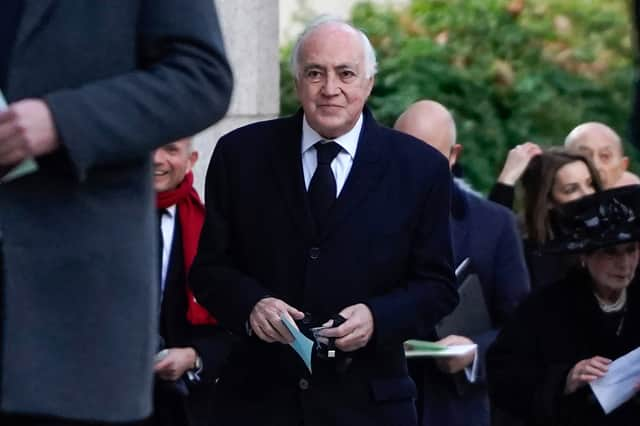Thames Water: architect of water privatisation defends decision amid turmoil
and live on Freeview channel 276
Lord Michael Howard, one of the architects of water privatisation, defended the decision amid questions over Thames Water’s future.
The former Tory leader, who served in Margaret Thatcher’s government, admitted that with “hindsight” companies should perhaps have been prevented from taking on excessive debt.
Advertisement
Hide AdAdvertisement
Hide AdThe chief executive of Thames Water stepped down this week amid serious questions over the debt-laden firm’s future, with some suggesting re-nationalising the system as a solution. The Government has tried to calm the waters by saying the utility has “secure and committed” funding and reassuring customers their supply will not be interrupted.
Lord Howard, a Conservative peer, rejected suggestions that a return to public ownership is a viable solution.
What has he said about privatisation?
Lord Howard explained: “The point about public ownership is this: if you have the industry in the public ownership it has to compete for resources with health, with education, with the police, with all the other legitimate demands on the public purse, and water when it was in public ownership was way down the queue.
“When you release it into the private sector you have recourse to private capital. You can make the investment that’s needed,” he told BBC Radio 4’s Today programme.
Advertisement
Hide AdAdvertisement
Hide Ad

Questions have emerged about the debt taken on by firms
Total debt in the sector hit £60.6 billion last year, increasing by more than £1 billion from the previous year, Ofwat said.
Late last year, the watchdog flagged four other firms whose financial health it was most worried about. These were Southern Water, Portsmouth, Yorkshire, and SES Water.
The peer said Ofwat has powers to regulate the industry in the interests of consumers but suggested the regulator was perhaps caught “off guard” by rising interest rates.
“When interest rates were very low, borrowing seemed a reasonable thing to do, and perhaps Ofwat should have paid more attention to that. But they’re not the only people who have been caught off guard, to some extent, by the recent increase in interest rates,” he said.
Advertisement
Hide AdAdvertisement
Hide Ad“It’s easy to look at these things with hindsight and I think I would accept that with hindsight some of the companies have been allowed to borrow too much and should have been raising more of their capital through the issuing of equity,” Lord Howard said. "I think it is arguable that the companies have been allowed to take on too much debt."
Comment Guidelines
National World encourages reader discussion on our stories. User feedback, insights and back-and-forth exchanges add a rich layer of context to reporting. Please review our Community Guidelines before commenting.